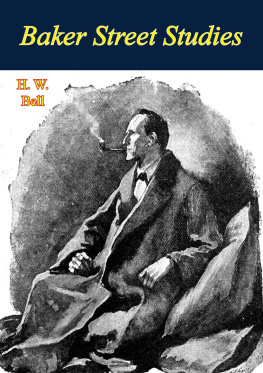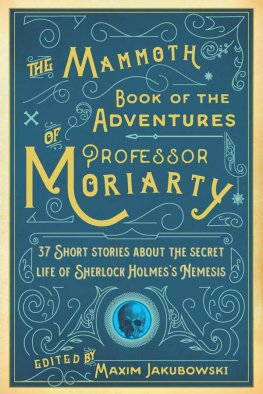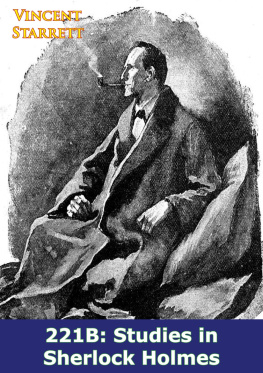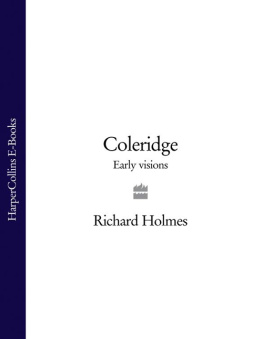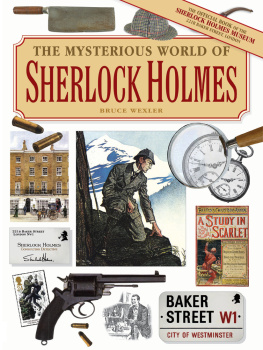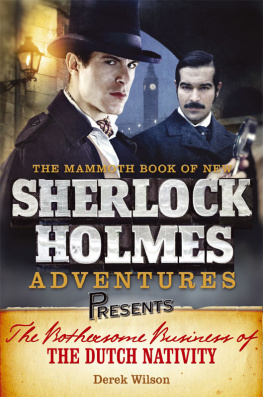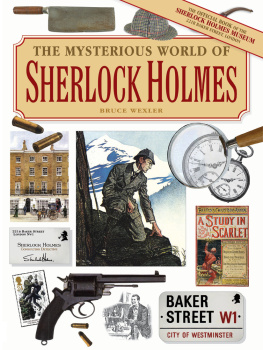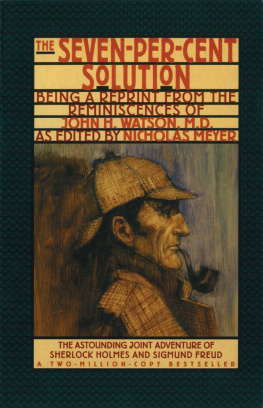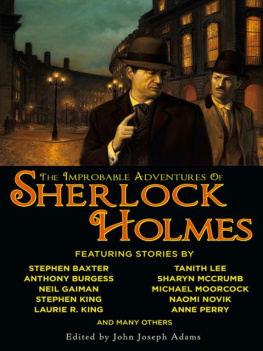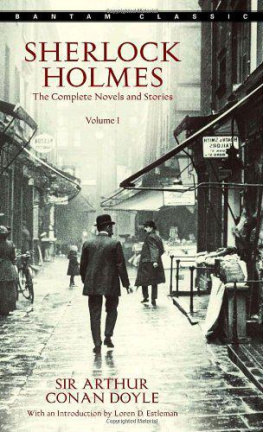

This edition is published by PICKLE PARTNERS PUBLISHINGwww.pp-publishing.com
To join our mailing list for new titles or for issues with our bookspicklepublishing@gmail.com
Or on Facebook
Text originally published in 1934 under the same title.
Pickle Partners Publishing 2016, all rights reserved. No part of this publication may be reproduced, stored in a retrieval system or transmitted by any means, electrical, mechanical or otherwise without the written permission of the copyright holder.
Publishers Note
Although in most cases we have retained the Authors original spelling and grammar to authentically reproduce the work of the Author and the original intent of such material, some additional notes and clarifications have been added for the modern readers benefit.
We have also made every effort to include all maps and illustrations of the original edition the limitations of formatting do not allow of including larger maps, we will upload as many of these maps as possible.
BAKER STREET STUDIES
BY
H. W. BELL

TABLE OF CONTENTS
Contents
INTRODUCTORY NOTE
Lhomme nest rien, luvre tout! To this sentiment in one of Flauberts letters to George Sand Holmes lent the weight of his approval; and as we all know, on several occasions he reproached his biographer for injecting an element of romance into what, in his opinion, should have been a serious scientific study. He would have preferred to have his cases recorded as coldly and impersonally as a problem in Euclid, with no more irrelevant material than is found in Flauberts own adored Spinoza.
But not even the most docile and devoted companion of a great man can wholly put off his own nature at anothers behest and take on a different habit of mind; if he is an artist the feat becomes quite impossible. Rather than change his attitude towards his art, Watson suffered his friends unfriendly comments in silence, not concerned to justify himself. For he had the true artists inward assurance that he was right, deeply aware that, as George Sand insisted to Flaubert in her reply, La suprme impartialit est une chose antihumaine...la qualit essentielle lui manque: lintrt.
This one essential Watson made it his lifes work to seize and note down. His reward is a Sherlock Holmes who is not a fading memory at Scotland Yard, nor a bloodless ghost lurking in library basements where the newspaper-files are stored away, but a Holmes who dwells for ever with the blessed immortals, in a state transcending the limitations of space and time.
But when a mortal has thus put on immortality, his devotees make haste to scrutinise his acts, his words, and his very thoughts, as under a microscope, in order to forestall the attentions of the Devils Advocate. They themselves are at pains to be the first to call attention to seeming flaws in their hero, and in the next breath to show how these difficulties may all be easily reconciled, to the confusion of the impious.
And thus it is that we, who have survived or who have not known the epic age of the Victorian heroes, are following in the footsteps of the Alexandrian scholars and have become glossators, commentators. To a glossator every detail is precious. He is as eager to verify an uncertain date as to determine the conditions of the heros early life and training; he feels it imperative to define his ambiguous attitude towards the opposite sex; and, though with shuddering and awe, to contemplate his human limitations. His brother, though infrequently mentioned in the sources, will be an object of study; and if he, how much more the faithful biographer upon whose piety the glossator is wholly dependent. His great opponent cannot escape minute investigation; and even the humble and self-effacing landlady is assigned her niche in the gallery of the heros fame.
Such, then, has been our task. The studies here presented are in the nature of surface-finds; but the lode runs deep and contains inexhaustible ore. It is for you, our readers, generous and enthusiastic (if such you are indeed) to signify in the only intelligible manner if we are to excavate this hidden wealth, and offer it for your enrichment and delight.
H. W. BELL
EXPLANATION
IN the notes, references to the Stories are to the two-volume edition published by John Murray. This, the first collected edition, the only one corrected by the Author, must be regarded as definitive.
For convenience and brevity, the roman numeral I is used to indicate the volume of Short Stories, and II that of the Long Stories. The titles of the adventures referred to are likewise given, unless clearly indicated in the text.
HOLMES COLLEGE CAREERDOROTHY L. SAYERS
Is there any other point to which you would wish to draw my attention?
To the curious incident of the dog. SILVER BLAZE
I.HOLMES COLLEGE CAREER
The evidence as to Holmes college career rests upon two short passages, occurring in the adventures of The Gloria Scott and The Musgrave Ritual respectively. Brief as they are, these passages contain more than one apparent contradiction, and present a curious and interesting series of problems to the critic.
The passage in The Gloria Scott is as follows:
[Victor Trevor] was the only friend I made during the two years that I was at college. I was never a very sociable fellow, Watson, always rather fond of moping in my rooms and working out my own little methods of thought, so that I never mixed much with the men of my year. Bar fencing and boxing I had few athletic tastes, and then my line of study was quite distinct from that of the other fellows, so that we had no points of contact at all. Trevor was the only man I knew, and that only through the accident of his bull-terrier freezing on to my ankle one morning as I went down to chapel.
The passage in The Musgrave Ritual also purports to be Holmes ipse dixit . It runs:
When I first came up to London I had rooms in Montague Street...and there I waited, filling in my too abundant leisure time by studying all those branches of science which might make me more efficient. Now and again cases came in my way, principally through the introduction of old fellow-students, for during my last years at the university there was a good deal of talk there about myself and my methods. The third of these cases
Tantalisingly meagre though they are, these two passages are of the utmost importance, since they are almost all that we have to go upon in establishing, not merely the educative and formative influences which presided over our greatest detectives youth, but also the actual date of his birth. It will, therefore, not he wasted labour if we examine them with particular attention, in the hope of answering these questions, viz.:
(A) Which was Holmes university?
(B) How long did his academic career last?
(C) When did he matriculate?
(D) In what year was he born?
(E) What subject or subjects did he study?
(F) Which was his college?
(G) What did he do immediately after leaving college?
Much of the vagueness which has attended the efforts of previous commentators to handle the matter has arisen from the assumption that the regulations governing the older Universities were the same in the seventies as they are today. It is taken for granted that the Final Examinations were held in the Easter Term, and that an undergraduate would, in the ordinary course of events, always come into residence in October and go down in June. It will be seen that this was not by any means the case. The whole question is considerably more complex, and the alternatives that present themselves are so numerous as to make any precise conclusion difficult in the extreme. I shall hope, in the following pages, to determine the conditions of the problem with a little more precision than has been attempted hitherto, and to put forward some sort of tentative answer to all the queries in my list.
Next page
